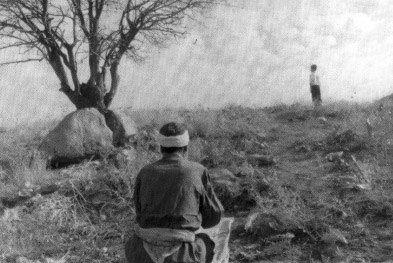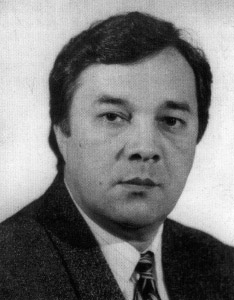

Aliev's film depicts events in the life of an eight-year-old boy in the days surrounding the devastating 1948 earthquake in the Turkmen capital, Ashkhabad, which killed many tens of thousands. The boy's idyllic childhood, with a loving mother and a motley group of kind neighbors and school friends, comes to a sudden end when he is left orphaned by the disaster. He leaves the city with his grandfather—whose adherence to traditional beliefs caused him to run afoul of the Stalinist authorities—but vows to return one day.
In one of his last roles, legendary actor and filmmaker Rolan Bykov appears as a devoted, melancholy orphanage director.
The film was never shown theatrically because of strict censorship in Turkmenistan under authoritarian president Saparmurad Niiazov (a.k.a. Turkmenbashi, "leader of the Turkmens"), who walked out of a private screening at the presidential palace in 1997. Director Aliev believes that Niiazov was displeased by the film because it does not depict the Turkmen people in a sufficiently heroic light, and also because the boy-protagonist of the film is loosely modeled on Niiazov himself, who lost his parents in the earthquake.

Murad Aliev was born in Ashkhabad in 1951. He graduated from the State Filmmaking Institute (VGIK) in Moscow in 1977. From 1977 to 1991 he worked as a documentary filmmaker at Turkmen Studios. In 1991 he became the director of the Nusai center for children's television and cinema, and in 1993 was appointed deputy chairman of the Turkmenistan State Cinema-Video Company. His professional career in Turkmenistan ended abruptly in 1997, when president Niiazov expressed his negative opinion of Children of the Earthquake.